Getting quality sleep isn’t just about going to bed early, it’s about creating the right environment and using the right tools to support your body’s natural rhythms. From medical-grade devices to lifestyle-enhancing accessories, a growing range of technology is helping people sleep smarter and wake up feeling truly refreshed.
Below, we explore essential devices and tools, including CPAP machines and hearing aids, that can significantly improve your sleep quality.
1. CPAP Machines: The Gold Standard for Sleep Apnoea
For people with obstructive sleep apnoea (OSA), breathing interruptions during sleep can lead to serious health issues like heart disease, high blood pressure, and chronic fatigue. Continuous Positive Airway Pressure (CPAP) machines have become the go-to solution for managing this condition.
How it works: A CPAP machine delivers a constant stream of air through a mask, keeping the airway open throughout the night. This reduces snoring, improves oxygen levels, and enhances overall sleep quality.
Why it matters: Using a CPAP consistently can:
-
Increase daytime energy
-
Improve mood and focus
-
Reduce long-term health risks
If you suspect you have sleep apnoea, consult your doctor and consider exploring trusted providers like CPAP Online for machines, masks, and accessories tailored to your needs.
2. Hearing Aids with Sleep-Friendly Features
While hearing aids are typically associated with daytime use, newer models offer features that can support better sleep, especially for individuals with tinnitus (ringing in the ears) or noise sensitivity.
Modern innovations include:
-
Tinnitus masking: Playing soft background sounds to reduce the perception of ringing
-
Sleep tracking integration: Some hearing aids now pair with mobile apps to monitor rest patterns
-
Custom sleep programs: Adjustable settings that reduce noise input and boost comfort when sleeping with hearing aids
Why it matters: Managing tinnitus and background noise effectively can mean fewer sleep disruptions and a more peaceful night.
3. Smart Sleep Trackers
Wearables like smartwatches or rings (e.g., Fitbit, Oura) offer sleep stage tracking, heart rate monitoring, and even readiness scores to help you understand how well you’re sleeping, and how to improve it.
Benefits include:
-
Identifying patterns in poor sleep
-
Adjusting bedtime habits based on data
-
Receiving personalised tips for better rest
4. White Noise Machines & Sound Therapy
For those who struggle with falling asleep due to environmental sounds or racing thoughts, white noise machines or sound therapy devices can make a world of difference.
Popular options include:
-
Rain sounds
-
Ocean waves
-
Pink noise or brown noise
-
Guided meditations or ambient soundscapes
These tools help mask disruptive noises and cue the brain for relaxation.
5. Smart Lighting for Circadian Support
The lighting in your bedroom directly impacts melatonin production, the hormone responsible for sleep. Smart lights that adjust colour temperature throughout the day, mimicking natural sunlight, can help you fall asleep faster and wake more naturally.
Best practices:
-
Use warm, dim lighting in the evening
-
Avoid blue light from screens before bed
-
Set schedules using smart bulbs or apps
6. Cooling Devices and Weighted Blankets
Body temperature plays a big role in sleep regulation. Devices like cooling mattress pads or bed fans, as well as weighted blankets, can help support deeper, uninterrupted sleep by keeping you thermally comfortable and physically relaxed.
Final Thoughts: Invest in Rest
Sleeping smarter isn't just about upgrading your mattress, it's about tailoring your sleep setup to meet your individual needs. Whether you're managing a condition like sleep apnoea with a CPAP machine or enhancing your night-time environment with white noise and smart lighting, the right tools can dramatically improve your quality of rest.
If you're serious about improving your sleep, start by exploring technology designed to support your health and comfort, because better sleep leads to better living.


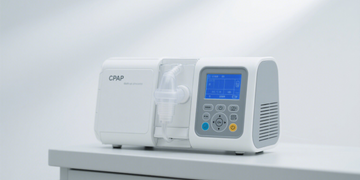
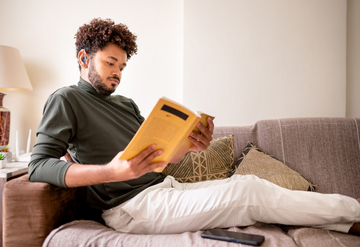
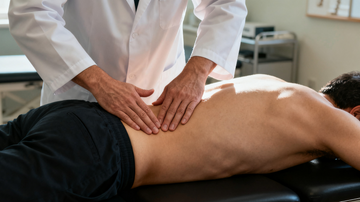
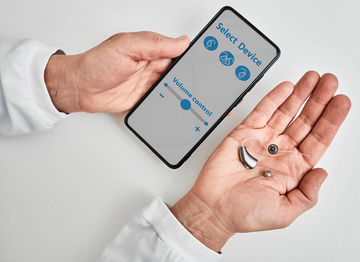

![Linner Mercury Clarity OTC Hearing Aids [FSA & HSA Eligible] Linner](http://www.linnerlife.com/cdn/shop/files/Linner-Mercury-Clarity-OTC-Hearing-Aids-_FSA-_-HSA-Eligible_-Linner-110038953.webp?v=1725853434&width=360)
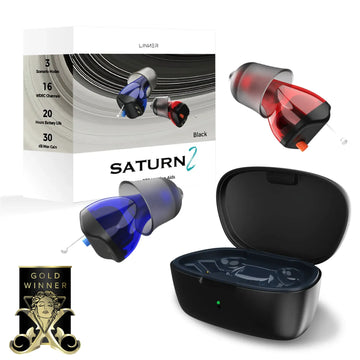
![Linner Mars OTC Hearing Aids [FSA & HSA Eligible] Linner](http://www.linnerlife.com/cdn/shop/files/Linner-Mars-OTC-Hearing-Aids-_FSA-_-HSA-Eligible_-Linner-110039213.webp?v=1725865495&width=360)
